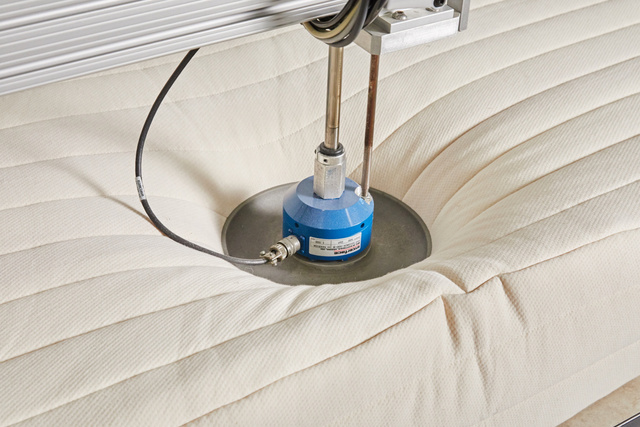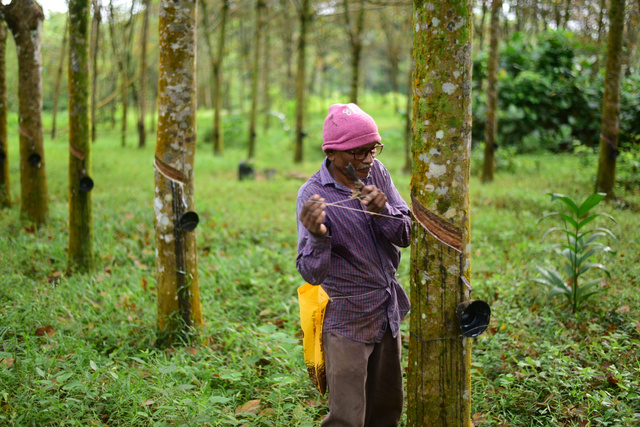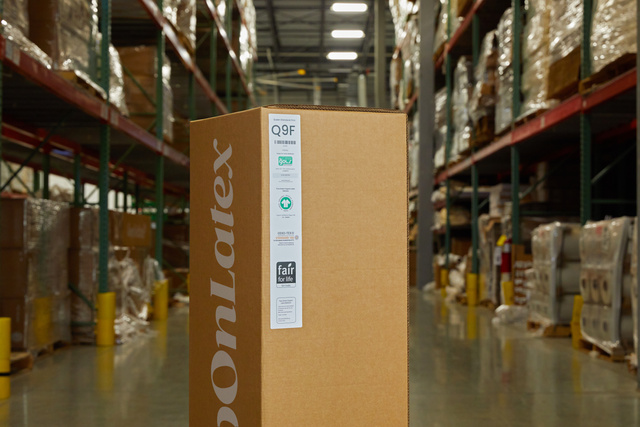Our Partnership with Wools of New Zealand
We're proud to be partnered with a cooperative of farmers with high standards and ethical practices
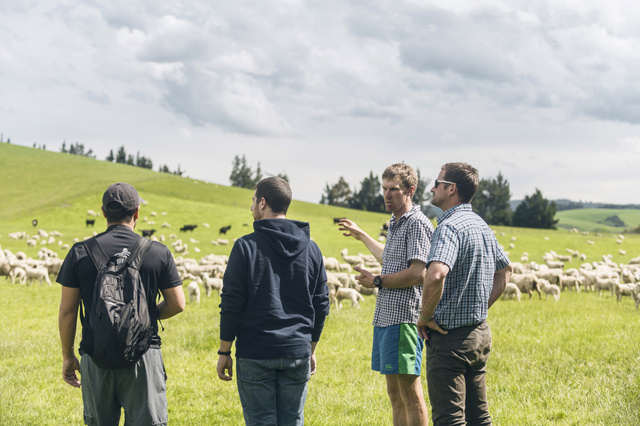
About Our Partnership with Wools of New Zealand
One of the many benefits of having only three main ingredients in our mattress is that we can dive much deeper into the story behind our materials than others might. One by one, we're working to establish a strong relationship with the entire supply chain for each of our materials. In this quest to develop a stronger connection to our supply chain, our wool manufacturer (who supplies us with wool batting) connected us with a collective of farmers in New Zealand called Wools of New Zealand.
Wools of New Zealand (WNZ) was created in response to a decline in the global price of wool earlier in the 21st century. While most farmers were bringing their wool to market to be auctioned to a middleman for pennies on the dollar, the founders of Wools of New Zealand had a better idea. They would skip the middleman and find direct partners (like us) who would commit to buying a certain amount of wool yearly at a fixed, fair price.
With direct partnerships, the farmers would be better off. Selling their wool wouldn't be a gamble like it used to be at the market. They would know it's sold before even sheering. Cutting out middlemen and establishing direct relationships with folks like us meant they could earn more for their wool. Farmers would also have a stronger connection to the final destination of their wool, rather than losing track of it once it's sold at the market.
The progressive idea of a farmer-owned cooperative that establishes direct trade with companies ended up being spot on. Through years of hard work, WNZ has found dedicated companies like us to partner with and has seen its vision come to fruition, providing their farmer with a more sustainable approach for their wool sales.
Since we connected with WNZ back in 2017, we've sourced 100% of our wool through WNZ. We're proud to partner with an organization that shares our value of keeping the supply chain intimate and simple.
Our Trip to New Zealand
After establishing our partnership, WNZ invited Sleep On Latex to visit New Zealand. For nearly two weeks, Drew Jaffe (Communications Manager) and Ezra Shevick (COO) traveled around with executive leaders from Havivank B.V. and Wools of New Zealand. The main objective of this trip was to connect directly with the farmers responsible for producing our wool.
With this goal in mind, WNZ organized several "Grower Meetings" in different spots across New Zealand. At each grower meeting, we had every piece of the supply chain in one room.
Our growers care for the sheep and harvest the wool.
Our manufacturer, Havivank B.V., who turns the New Zealand wool into wool batting for us.
And us, selling you a mattress containing that wool.
The growers were generally grateful to learn what their wool was being used for, as we were to meet the people responsible for producing our wool.
In addition to Grower Meetings, the travels included farm visits with Wools of New Zealand farmers. We gained insight into what goes into wool production and what it takes to produce organic wool through these visits.
Visiting Our Organic Farms
Below are pictures taken during one of the farm visits with Avalon Genetics, an organic farm owned by Allan and Sonia Richardson. Allan was proud to share that you'll find rich, healthy soil if you stick a shovel into the dirt anywhere on his farm.
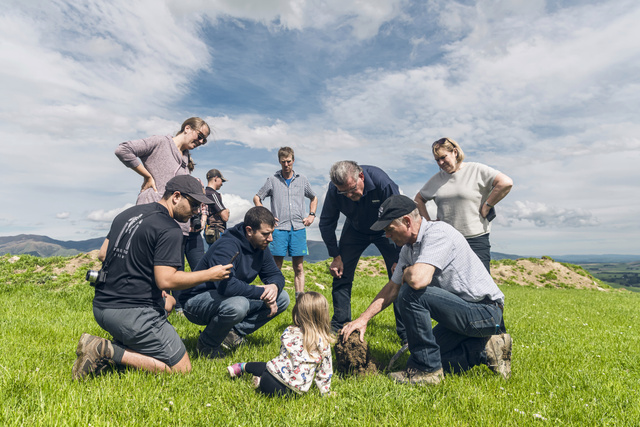
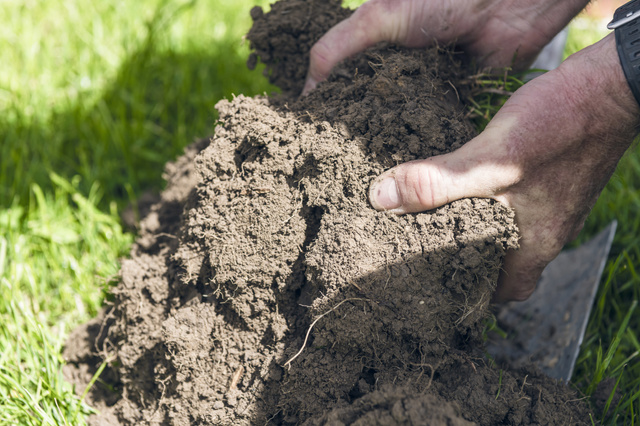
Allan explains that you'd find depleted soil that relies on herbicides and synthetic fertilizer to grow new cover crops (grass/clover) year after year on most non-organic farms. As an organic farmer, Allan plants many cover crops (as opposed to just one or two) to build healthy biodiversity for his soil. He also regularly rotates his animals into new pastures, allowing pastures the time they need to grow and heal after being chopped down by sheep and cattle.
Aside from the standard organic practices such as avoiding synthetic fertilizers, GMOs, and pesticides/herbicides, there are some fundamental differences between organic and non-organic sheep farming in New Zealand.
On non-organic farms in New Zealand, farmers drench their sheep yearly. Drenching is a somewhat invasive process involving spraying medicine into a sheep's throat to help protect them from internal parasites. Organic farmers are limited to one drenching in a sheep's lifetime. While this leads to less discomfort for the sheep, it also calls for farmers to find other ways to help the sheep avoid parasites. Allan does this by rotating his sheep to a new field before the grass is chewed down too low. This allows the sheep to keep their faces further from the ground, lowering their chance of getting parasites in the first place.
Farmers also shared the many barriers they faced in getting organic certified. With a slew of new regulations to follow, becoming an organic farm was no small feat for the growers we spoke with.
WNZ Impact on Organic Farming
Transforming land that previously relied on synthetic fertilizers and herbicides into sustainable, organic systems is tedious and expensive. From rebuilding soil health to working towards total compliance with organic standards, farmers often sacrifice multiple years of profitability to make the switch. Yet, the number of certified organic farms has dramatically increased in New Zealand over the past decade.
So what incentivizes farmers to go organic? We hope that partnerships like ours with Wools of New Zealand have had something to do with it. Since we're paying more per kilo for organic wool, farmers may see more reason to change their practices to earn more for their wool. That aside- many farmers convert to organic farmers because it's simply better for their animals and land.
Wools of New Zealand has employees dedicated to helping farmers convert their farms to meet organic standards, assisting them with the paperwork and certification process, and connecting them with other organic farmers to help ease their transition. For this reason, and many others, we're grateful to be partnered with Wools of New Zealand.
Learn more about Wools of New Zealand by visiting their website: woolsofnz.com
